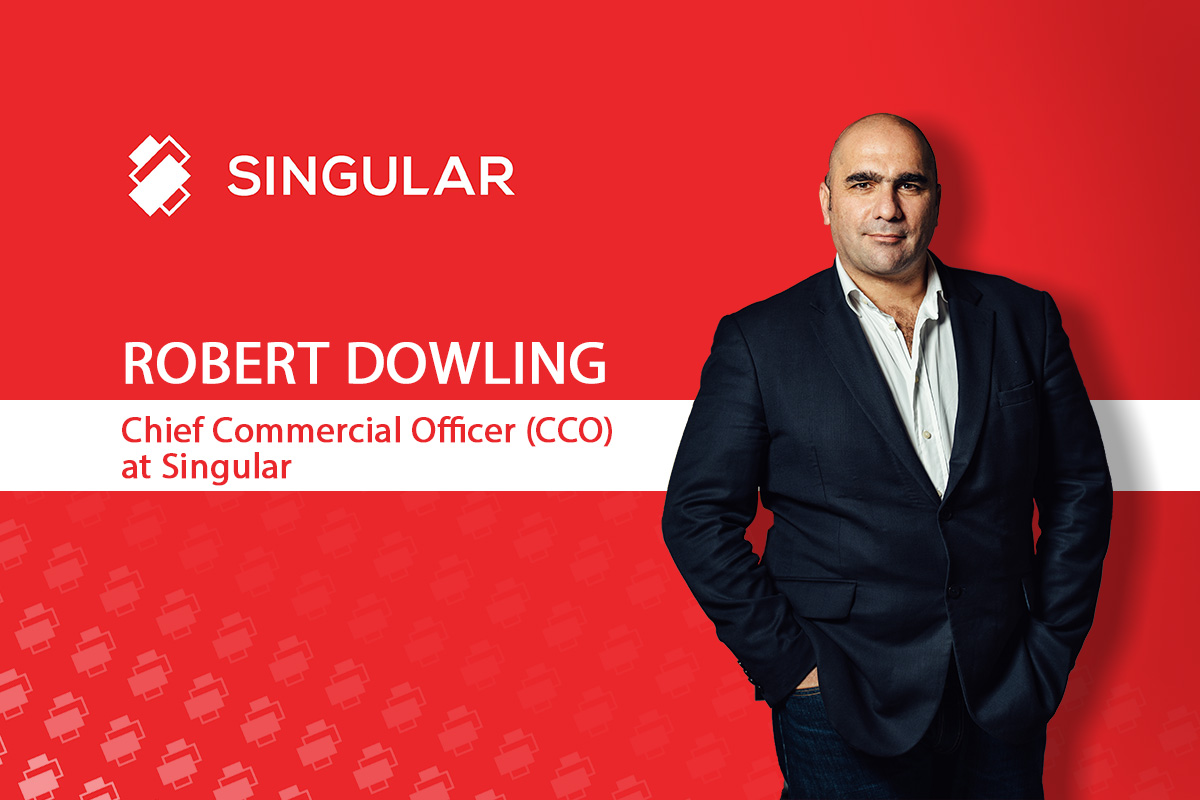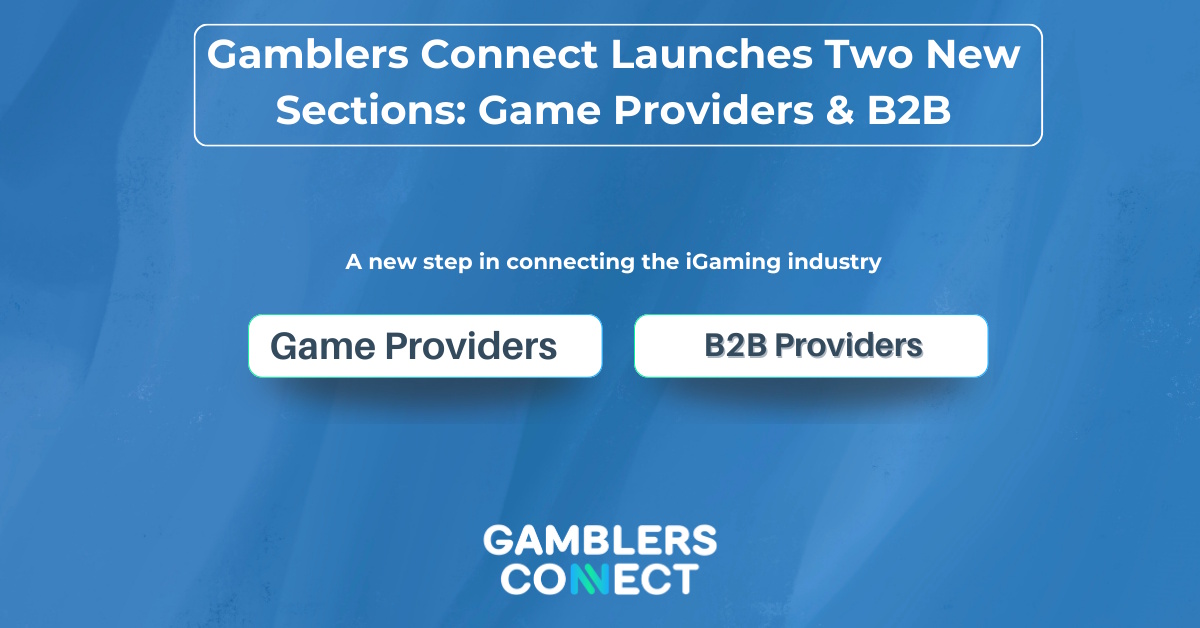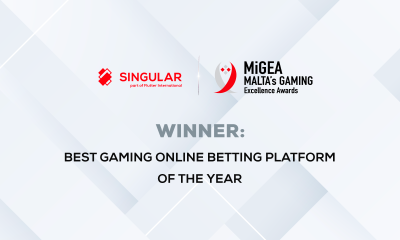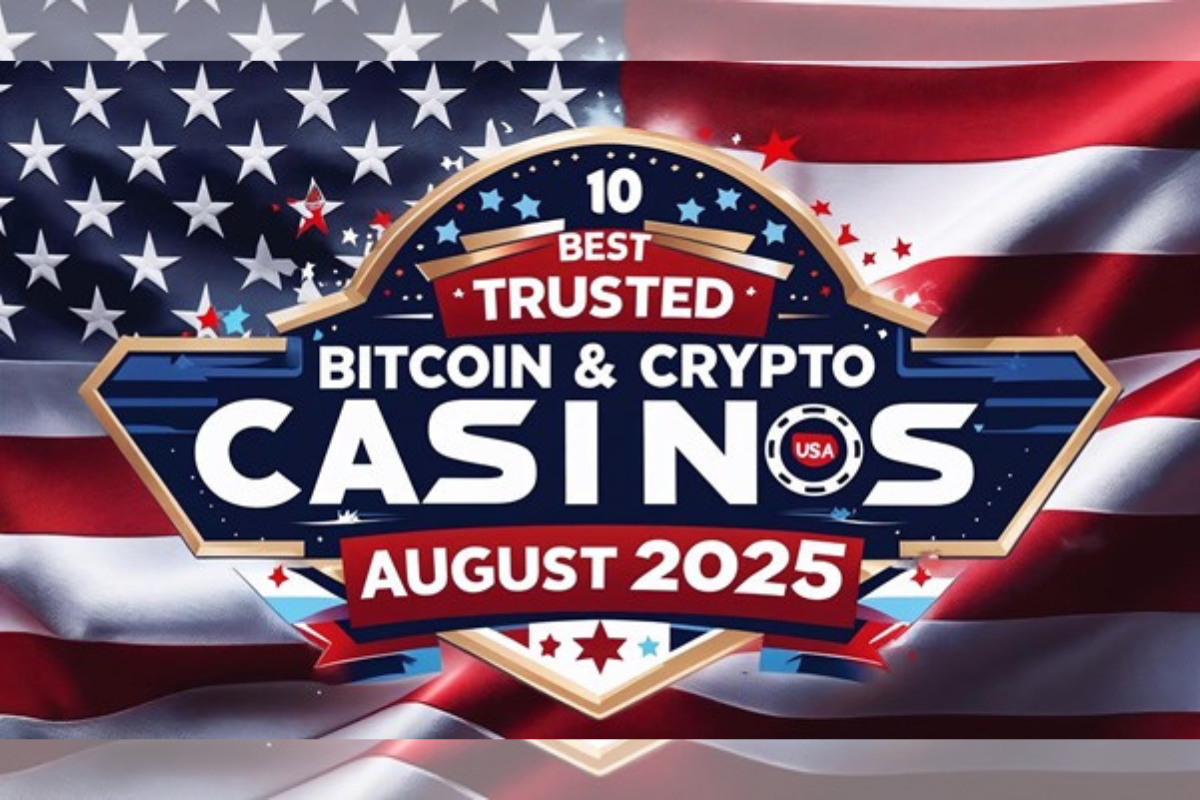Interviews
OPPORTUNITIES AND CHALLENGES FOR RETAIL BRANDS IN 2021 – Q&A with Robert Dowling, CCO at Singular

- What are the differences between operating online vs brick-mortar operations (understanding the differences first before discussing what the synergies might be)?
It is a common misconception that having successful brick and mortar operations guarantees online success. These two sectors, although intertwined, are two unique, and very complex ecosystems that require different approaches and technologies for each, even different skill sets. To be successful in both areas, you have to understand the cultural biases, psychological factors, and technology implementation to take advantage of both verticals.
Land-based betshops attract players that enjoy placing a bet with their friends exchanging information prior to placing the bet. This is all part of the pattern of the social gambler. For this type of player, location can be an even bigger factor than the brand itself. However, this does not mean that the social gamer will not go online to place a bet. With the increased use of mobile betting, this has even intensified. Online operators have come up with a number of social features like live chat, live dealers, and options for social sharing of bet slips to recreate the community feeling. In some instances, the engagement between the player and the dealer is reinforced even further via live dealers. For successful online operations, operators must invest in seamless technology that allows their land-based operations to interact and link players to their online portals. For the player, it is essential to experience a seamless transition from the offline to the online space. The seamless technology allows players to start the game at their favorite betshop and continue playing from the comfort of their home.
- What challenges operators face when building seamless retail+online operations?
The number one challenge is legacy systems that need to be integrated with modern technology. This also implies that we need people who will understand and be able to manage modern technology. Second, the knowledge gap between what is required and what is actually delivered. The delivery requirements for online operations can be very different from the ones for a retail shop. For example, customer services need to be tailored for the online expectations of the player. We have to keep in mind that we are still an entertainment industry and make sure the brand does not lose that social and fun element to it when it goes online. Moreover, as already mentioned, the player should enjoy an easy transition from offline to online and vice versa with access to their seamless wallet, access to the same games, and betting options. Casinos can take a step further by live-streaming the dealers that are currently present in the physical location.
- What are your recommendations for a retail brand that wants to shift towards online operations? What is the best strategy and approach?
We will see an increasing number of operators going online, and there is only one right way to do this is. Build a unique player journey that delivers a seamless experience for the players from start to end. One way to do this is to acquire an online brand that has the experience and licensing requirements for online operations. This is the right choice if time is of the essence. Another option for the operator is to partner with a platform provider that has experience with taking brands online and flexibility to deliver tailored solutions for each operator. In addition to the technology, operators need to choose a team having experience and time to guide them through the process.
- Covid has changed the consumer behavior; we see a strong move to online; What does this mean for retail operations in 2021?
In 2020, retail experienced a lot of hardship and evolution caused by the frequent opening and closing of the physical betshops. This has added pressure on high-street stores with traditional retail operations to move online. In my opinion, the focus in 2021 will be on two strategic points. Firstly, strengthening the online market share while also taking advantage of newly-regulated markets. Second, operators must take a step back, review their offering and identify the weak link, the product that might be falling behind the competition and work on innovative features for their customers. For retail brands striving to take their brand online, a technological strategic alliance that can facilitate scaling while still enhancing the retail offering would be the right way forward.
Additionally, in 2021 we have a number of sporting events that create vast opportunities for growth for both established brands and startups. The pandemic and the push towards online has evened out the playing field for experienced operators and newcomers. Although established brands will enjoy higher trust and loyalty when going online, they need to bear in mind that if the user experience is not on par with the competitors, they might lose the advantage based on their brand recognition.
-

 Latest News7 days ago
Latest News7 days agoGamblers Connect Shortlisted for Prestigious Affiliate Awards at SiGMA EURO-MED and SBC Summit 2025
-

 Africa4 days ago
Africa4 days agoQTech Games wins Best Innovation of the Year at the 2025 SBWA+ Eventus Awards
-

 Asia4 days ago
Asia4 days agoNODWIN Gaming and JioStar Unveil OnePlus Android BGMS Season 4
-

 Latest News7 days ago
Latest News7 days agoGamblers Connect Launches Dedicated ‘Game Providers’ and ‘B2B Providers’ Sections to Strengthen Industry Partnerships and Visibility
-

 Latest News4 days ago
Latest News4 days agoVindral appoints Henrik Fagerlund as Chairman of the Board
-

 Latest News4 days ago
Latest News4 days agoCalema to Perform at Legends Charity Game in Lisbon
-

 Conferences in Europe4 days ago
Conferences in Europe4 days agoEGT Digital and EGT to rock the show at SiGMA Euro-Med 2025
-

 Latest News4 days ago
Latest News4 days agoPush Gaming redefines its portfolio, unveiling new game categories and sub-brand for extended player reach































